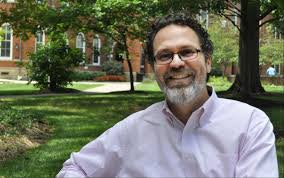It is now clear that the present crisis is a pivotal moment for US colleges and universities. We are likely not momentarily paused before a swift return to business as usual. Major socio-economic shifts are on the horizon and little is clear about what life will look like when the pieces finally settle, despite confident pronouncements to the contrary. It is in moments like these, when nearly all we know is that in the coming weeks and months leadership will need to act swiftly despite grave uncertainty, that it is perhaps time for us to return to foundational and fundamental considerations about the purposes and possibilities of education in this country.
Toward this end, I would like to share a few modest thoughts about why colleges and universities might consider what they can do to reclaim a value that often receives a great deal of lip service, but whose full embrace could define a new path of commitment and service for a number of institutions. I am speaking of a certain intellectual virtue whose absence is easy enough to ignore when times are good, but whose presence I am willing to bet nearly all of us have missed sorely in the past several months, namely, intellectual humility.
 Dr. Miguel Martinez-Saenz
Dr. Miguel Martinez-SaenzLet me explain. What COVID-19 has brought to the fore is the challenge of dealing as citizens with the cacophony of mixed and incompatible advice we receive from so-called “experts” and “political leaders,” figures whose recommendations and proclamations are amplified in cross-directions through the power of social and corporate media. Though psychologists have increasingly come to understand that most human beings under “normal” conditions are prone to a variety of cognitive biases in daily decision-making—from tribalism and confirmation bias to implicit racism and xenophobia—these biases, placed in context of rampant political polarization and coupled with a media environment in which doctors, politicians, and even internet celebrities claim to know what the next person doesn’t, renders the problem of how to make judgments about ‘Who to Trust?’ unbearably difficult for us all.
The sad fact is that COVID-19 has simply made visible a problem that was already present. Americans were already targeted from competing directions by news shows, newspapers and blogs designed to be read or watched primarily by audiences unaccustomed to anything but reaffirmation of their existing views. The pandemic certainly hasn’t changed this even as it has undoubtedly magnified it.
The role of educational institutions—as a supplement to media, economic and governmental institutions—is crucial in developing virtues to balance the tension between the intellectual entitlement to have one’s own views respected and the intellectual humility to see those views as fallible, partial, dogmatic, and often unjustified. In short, educational institutions should help instill not only recognition of the importance of promoting the dignity of all persons as well as promoting the specialized expertise that allow each person to contribute meaningfully to society, but also the equally important critical ability to recognize when oneself and others have/lack expertise worthy of trust.
This sort of thinking about knowledge and expertise has a long history in the Humanities, an ambiguous and sometimes vague area of study often disrespected because it is supposed that it offers no direct production of knowledge in the same respect as do the STEM disciplines. Whether Humanities disciplines produce knowledge is certainly worth asking, but ultimately in my view much less important than what they clearly do produce, namely, a set of discourses that help us think about how to recognize knowledge, to see why knowledge is good and should be respected, to understand how knowledge has helped the species as a whole, to grasp the variety of sources of knowledge, to desire to acquire knowledge where one can, and also, crucially, an honest and humble willingness to admit one’s own ignorance where it exists.
There is no doubt that building both knowledgeable and wise citizens, who have self-awareness to admit fallibility and the need for help, will require effort from families, churches, youth groups, and other collectives that make up our societies. But educational institutions should get serious about reclaiming the long heritage to which we belong, namely, our service as institutions that strive to educate citizens who not only command innovative expertise, but who possess the wisdom to recognize the situations in which they lack that command. We certainly need citizens who aren’t afraid to put forth their voices as vital contributions to our economic and governmental institutions. But those same citizens must also have skills to cut through the increasing number of sophists, false prophets, and plain old hucksters, and especially to make sure that “we” aren’t part of the problem.
Dr. Miguel Martinez-Saenz is the President of St. Francis College in Brooklyn, New York.



















